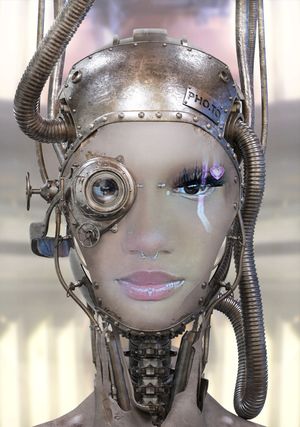The question of whether you can use rechargeable light bulbs in any lamp is one that's becoming increasingly relevant in today's energy-conscious world.
As we look for ways to make our homes more efficient and prepared for unexpected situations like power outages, rechargeable light bulbs seem like a smart choice. But can these innovative lighting solutions really be used in any lamp? Let's shed some light on this illuminating topic.
Understanding Rechargeable Light Bulbs
Rechargeable light bulbs work by using an internal battery that charges while the bulb is connected to an electricity source. When you lose power, these bulbs can continue to provide light, thanks to the stored energy in their batteries. This feature makes them particularly handy during power outages. Typically, these bulbs are LED-based, which means they are not only energy efficient but also have a longer lifespan compared to incandescents.
Compatibility with Lamps
Generally, rechargeable bulbs are designed to fit into standard fixtures, which means they can be installed in most lamps without any issues. Whether it's table lamps, floor lamps, or wall sconces, these bulbs are versatile. However, it's important to check the specifications of both the bulb and the lamp to ensure compatibility, especially when it comes to the base type and the size of the bulb.
The Benefits of LED Technology
LED bulbs, including rechargeable ones, are known for their energy efficiency and long lifespan. They can last for tens of thousands of hours, which means they need to be replaced less frequently than regular bulbs. Additionally, LEDs emit less heat, which not only makes them safer but also helps maintain better air circulation in the space.
Innovative Features of Modern Rechargeable Light Bulbs
Have you ever wondered what sets modern rechargeable light bulbs apart from the traditional ones? Well, let's dive into some of the innovative features that make these bulbs a must-have in every household. For instance, many LED lamps now come with smart technology that allows you to control them via your smartphone or voice commands. This means you can dim the lights, change colors, or even schedule them to turn on or off without ever having to touch a plug.
Moreover, some rechargeable light bulbs are designed with built-in motion sensors. Imagine walking into a room and having the lights automatically illuminate your path – it's not just convenient, it's also energy-efficient. These bulbs only burn when they detect movement, ensuring that no energy is wasted. This feature is particularly useful in areas like hallways or bathrooms, where you need quick, hands-free lighting. It's these kinds of advancements that make LED technology so integral to the modern home.
Preparing for Power Outages with Rechargeable Bulbs
When the lights go out unexpectedly, a power outage can turn an ordinary evening into a scramble for candles and flashlights. But with rechargeable light bulbs, you can keep your calm and carry on with your evening. These bulbs store energy and can automatically switch to their built-in battery during an outage, providing you with uninterrupted lighting. It's like having an emergency backup system that you don't even have to think about.
Let's consider a practical example. Imagine you're hosting a dinner party and the power suddenly cuts. Instead of the evening coming to an abrupt end, your rechargeable bulbs kick in, and the ambiance of your room remains intact. Guests might not even notice there was a power issue. This seamless transition is not only impressive but also provides a sense of security, knowing that your lights will stick with you through unexpected situations. It's clear that having a device that can recharge and provide light during emergencies should be a complete no-brainer for any homeowner.
Rechargeable Bulbs During Emergencies
One of the biggest advantages of rechargeable light bulbs is their ability to provide light during emergencies. When you lose power at night, these bulbs can switch to battery power, ensuring that your rooms stay lit. This feature can be a real lifesaver, providing visibility and safety until electricity is restored.
Considerations for Optimal Use
While rechargeable bulbs are generally compatible with most lamps, there are a few considerations to keep in mind. For instance, the brightness of the bulb when running on battery power may be lower than when it's connected to an outlet. It's also important to remember that the internal battery has a limited number of hours it can operate, so it's a good idea to have a backup plan, such as flashlights or additional rechargeable bulbs, in case of extended power outages.
Environmental Impact and Savings
Switching to rechargeable LED bulbs can also have a positive environmental impact. By reducing the need for disposable batteries and decreasing energy consumption, these bulbs help lower your carbon footprint. In the long run, they can also lead to cost savings on electricity bills and the need to purchase replacements less often.
Installation and Maintenance
Installing rechargeable light bulbs is typically as simple as screwing them into the desired lamp or fixture. It's important to ensure that the lamp is switched off before replacing the bulb for safety reasons. Maintenance is also straightforward, as these bulbs don't require special care beyond the occasional dusting. Just make sure to follow the manufacturer's instructions for charging and usage to maximize the lifespan of the internal battery.
FAQs
Q: How long do rechargeable light bulbs last on battery power?
A: The duration that rechargeable light bulbs can last on battery power varies by model, but they typically offer several hours of light. It's a good idea to check the product specifications for exact figures.
Q: Can rechargeable light bulbs be used in outdoor fixtures?
A: Yes, many rechargeable light bulbs are suitable for outdoor use, but it's essential to ensure that the bulb is rated for outdoor conditions and that the fixture provides adequate protection from the elements.
Q: Do rechargeable light bulbs need special fixtures?
A: No, rechargeable light bulbs do not generally require special fixtures and can be used in standard lamps and lighting fixtures. However, always verify compatibility with the lamp or fixture before use.
Summary
In conclusion, rechargeable light bulbs offer a versatile and energy-efficient lighting solution that can be used in most lamps. They provide the convenience of continued lighting during power outages and are environmentally friendly. While they are generally compatible with a variety of fixtures, it's important to consider their limitations and ensure proper installation and maintenance for optimal performance.








